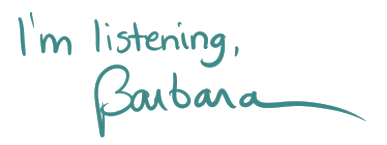
As the start of the semester approaches, you might feel a mix of emotions—excited, nervous or even overwhelmed. That’s perfectly normal. After all, each semester feels like stepping into a whole new world (or maybe a whole new Oz). The good news? (See what I did there? Heh.) The songs from Wicked: Part One are full of lessons to help you navigate the challenges ahead. Whether you’re a G(a)linda or an Elphaba at heart, there’s something here to help you start strong.
“No One Mourns the Wicked”
“Good news! She’s dead!”
This song sets the tone for a clean slate. Sure, it’s a little dramatic, but the message is clear: leave the past behind. Whether you’re coming off a tough semester or just didn’t quite hit your goals, let it go (cue Elsa) and focus on what’s next.
Takeaway: A new semester is a fresh start. Use lessons from the past to shape your path forward, not hold you back.
Listen on Spotify: No One Mourns the Wicked
“The Wizard and I”
“When I meet the Wizard…all my dreams will come true.”
This is all about ambition and the belief that great things are possible. Think about what you want to accomplish this semester—academically, personally or even professionally. Then, create a plan to work toward those goals. Dreams are wonderful, but action turns them into reality.
Takeaway: Define your goals early and revisit them often. Big or small, they’ll keep you motivated.
Listen on Spotify: The Wizard and I
“What Is This Feeling?”
“Loathing…unadulterated loathing.”
Let’s be honest. There will be moments when you feel this—whether it’s aimed at group projects, overly packed schedules or that one classmate who always shows up unprepared. Instead of letting those moments derail you, use them as opportunities to grow your patience (and maybe your sense of humor).
Takeaway: Frustration is inevitable. How you handle it is what matters most.
Listen on Spotify: What Is This Feeling?
“Dancing Through Life”
“Dancing through life, skimming the surface, gliding where turf is smooth.”
This song reminds us to find balance. Sure, school is important, but so is self-care. Whether it’s grabbing coffee with friends or binge-watching your favorite show, don’t forget to enjoy the journey. Life’s not only about deadlines and grades.
Takeaway: Balance is the key to thriving this semester. Plan your time and leave space for fun.
Listen on Spotify: Dancing Through Life
“Popular”
“I’ll help you be popular!”
Networking might not involve a makeover montage, but it’s still one of the most important skills you can develop. Building relationships with classmates, professors and mentors can open doors you haven’t even thought of yet.
Takeaway: Take time to connect—whether it’s saying “hi” after class, sending an email to a professor or participating in group discussions.
Listen on Spotify: Popular
“I’m Not That Girl”
“Don’t dream too far; don’t lose sight of who you are.”
This one is a reality check for those of us prone to overcommitting. (This is one of my major struggles.) Yes, it’s great to aim high, but be realistic about what you can achieve. Perfection isn’t required, and burnout isn’t worth it.
Takeaway: Be kind to yourself. Success looks different for everyone, so focus on what works for you.
Listen on Spotify: I’m Not That Girl
“Defying Gravity”
“It’s time to try defying gravity.”
Is this the ultimate empowerment anthem, or what? This song is your reminder that you’re capable of more than you think. Take the leap, whether that means applying for an internship, volunteering to lead a project or simply stepping out of your comfort zone.
Takeaway: Don’t let fear hold you back. Your biggest growth happens when you take risks.
Listen on Spotify: Defying Gravity
Wrapping Up
Starting a new semester can feel overwhelming, but it’s also an incredible opportunity to grow, learn and create connections. Like the characters in Wicked, you’ll face challenges, but you’ll also have moments of triumph that make the effort worthwhile.
And here’s a question for you
What’s one thing you’re hoping to achieve this semester? Leave a comment below—I’d love to hear your goals and cheer you on.

NOTES
The framework of this article was inspired by ChatGPT.



